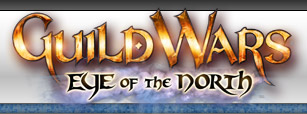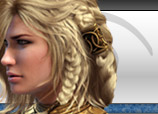|
Choosing groups is the most important part of finishing missions in Guild Wars. As the game countinues, choosing groups becomes especially improtant to be succesful. Heres some tips to make better groups.
1. Choose a leader
You absolutely have to have someone in charge, if not your group will probably die or it will otherwise take forever to go anywhere. At the very least you should follow the leader around. They also should be able to give directives to the party members. Once you have a leader, it is proper form to follow these rules for party members.
A party member should:
a. NOT run off ahead of the leader and do whatever you want, especially attacking whatever monsters you see on the map. Remember you are part of a group that needs to work together. Attacking when the group is not prepared could get everyone killed.
b. WATCH the Team channel for any directives during battle. This may be hard at first in the middle of a fight, but you should at least glance down. For instance, your leader may call a retreat and if you don't see it you'll be left standing alone among the evil fiends.
c. ACT in the role the leader has assigned for you in the party. If the leader has not given you a specific task, you should follow the description in this guide for your role (see below).
The leader should:
a. WAIT for all party members to be ready before initiating new actions. This includes combat, picking up a quest, and talking to an NPC. It can be frustrating if the leader talks to the NPC (a computer controlled character) while you are off screen and you don't get to see what the quest is about.
b. ANSWER any questions the party members have patiently and courteously.
c. HAVE some experience in leading a group.
2. Know your goals.
The leader should make clear to the party where you are going and what you are doing. For example: We are going north along the road to the Magical Falls to acquire the Sapphire Pendant to complete the Happy Wanderer quest.
3. Be PATIENT
Not everyone is in the game to simply run madly through all the quests and missions as fast as humanly possible. Rushing through a quest can put the party in danger, since they may not be ready for combat you initiate. It also takes away the fun from the other players who may be enjoying exploring the new area and want to look around a bit. Also, keep in mind not everyone has the same pace. The leader should set the pace, and it should be a moderate one, not too fast or too slow.
Party Roles
Besides specific tasks the leader may assign, the class of your character should dictate how you function in a party. This is a general guideline so you will be more effective as a party member.
Warrior
The warrior is often referred to as a "tank" in a party. This means that because you can take more damage, a good strategy is to draw enemies to attack you instead of say, the Monk who is healing you all. Though you should be up in front and fighting, it does not mean you should charge into a group of enemies as soon as you see them. Remember, work as a party.
One of the things that helps is while you are ahead drawing the monsters into a group, the spellcasters can have stationary targets to cast spells upon. So, primarily your job is to:
a. Engage enemies ahead of the rest of the group.
b. Protect the healer and other spellcasters.
Ranger
The ranger is a versatile class. You can perform many jobs within the party. In general, one of the jobs you can have is to draw monsters to the party. A party member who has this task is called the "puller." The ranger does this with the bow. Moving up just ahead of the rest of the party, the ranger shoots the closest enemy in the group. This brings the rest of the enemy running. Then the party forms up and fights.
A puller is not always needed, but in situations where there are multiple "clumps" of monsters it helps. Enemies in Guildwars tend to be in pre-defined groups, so if you attack one, the rest of the group comes. If there is more than one group nearby, it is ESSENTIAL that you only draw one of these at a time to fight so the party is not overwhelmed. This is yet another reason not to run off ahead of the rest of the party.
Besides that, your pet can function mostly like a warrior in the party. At this point you cannot really control your pet, so as a ranger, make sure you do not wander away from the center of the party and have the pet attack. So, in brief:
a. Pull enemy groups to the party with the bow
b. Keep your pet near the group and treat it like a warrior
Monk
Usually one party member will be the designated healer. This will be either a primary or secondary monk class character. Your job is fairly simple in description, but takes skill to perform well. Your priorities should be as follows:
1. Keep YOURSELF alive
2. Heal the tankers
3. Watch the other party members health in the party window
You also can cast protective spells and cure conditions that affect the party, as long as you keep the other three things first priority. As a Monk, you should get the resurrection skill, Restore Life, as soon as you can. Remember, you can't bring others back to life if you get yourself killed.
Spellcasters (Elementalist/Mesmer/Necromancer)
These classes have enough in common to describe them in the same way. While each one has unique abilities, they all have low armor protection and depend on others to take the damage while they cast spells.
As a spellcaster, your job is to do as much damage to the enemy as you can. There are three general types of spells that you can use to do this:
1. Area damage spells (eg. Firestorm, Chaos Storm)
2. Single creature damage spells (eg. Flare, Immolate)
3. Weakening/draining spells (eg. Conjure Phantasm, Enfeeble)
When it comes to being a good spellcaster in a party, the key is to be PATIENT. Do not start throwing around spells at the beginning of combat. Instead you should WAIT until the enemies have chosen their targets to attack, then you will have a clear course of action.
IF you see a group of enemies in a cluster, you can use an area effect spell. You should keep 2 things in mind when you do this:
1. Target the monster in the CENTER of the group for best coverage
2. Don't waste the spell if the enemies are almost dead
Your first area effect spell you cast should be around the TANKER. Usually the tanker has drawn a group of enemies by this time. Keep in mind that enemies not engaged in melee combat (fighting hand to hand) are free to move out from the area of your spell effect, but those fighting close in will stay in one place more often.
And whatever you do, do NOT use the area effect spell first or to draw the monsters. This will almost certainly be a wasted spell, as the creatures will have moved.
Once you cast an area effect spell, it is a good idea to scan through the other enemies (use the Tab key) and see the level of health for each. This helps to spread out the damage you are doing. Find an unharmed enemy and hit it with your weakening spells. It is good if you have 2 or 3 of these to cast in succession. For instance, a Mesmer could cast Fragility, Conjure Phantasm, and Phantom Pain in succession. This should make the enemy weak when your companions get to it. You can choose to finish it off, or cycle to the next enemy.
Note: If the enemy party has a HEALER creature in it, it should be your next target after the area effect spells. ALL of the mages in the party should make it their goal to eradicate enemy healers as soon as possible.
Try to identify the most dangerous creatures in the enemy group as you cycle through the targets and take them out. Once you run out of your powerful spells, you should have one that costs low energy (eg. Flare) that you can use to deal out damage. If you run out of magic, there is always your wand/staff.
Conclusion
This basic guide will help you be an effective party member and help you have good etiquette when in a party. Follow courtesy, listen to the leader, and know your role in the group and you will be invited back into many parties.
|









![(!empty($user->lang['IMAGE'])) ? $user->lang['IMAGE'] : ucwords(strtolower(str_replace('_', ' ', 'IMAGE')))](http://img426.imageshack.us/img426/2079/googlecopy2or.gif)





